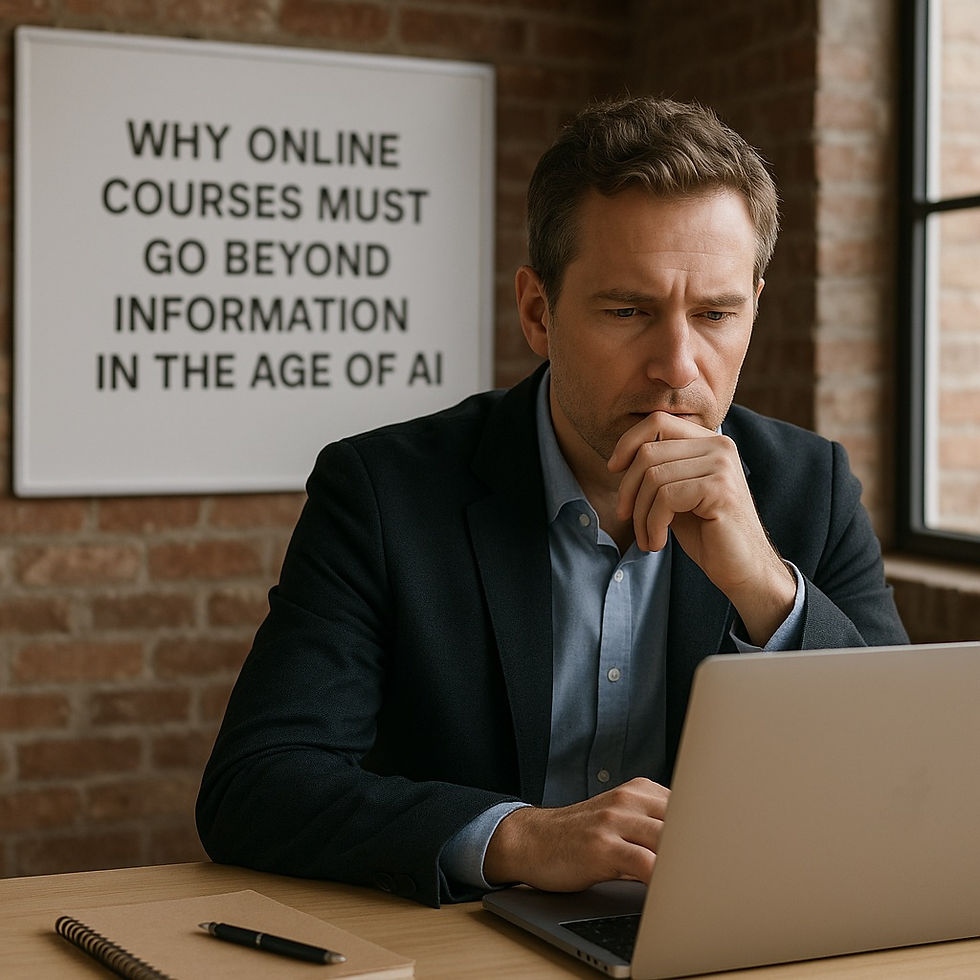Think! Or Thwim...
- Bernard Kates

- Jan 25, 2024
- 5 min read
An old joke, maybe, but I'm repeatedly struck by how few people in the world today seem inclined to use the wetware between their ears for anything except the most trivial of purposes. Thinking - really thinking deeply about meaningful questions of life, the Universe and everything - seems to be beyond many of us. We'd rather watch drivel on Netflix, or go shopping, or lose ourselves in the latest online gaming phenomenon.
What's that about?
Admittedly, thinking does involve expending mental energy, and the effort required to do it may explain some of the reluctance.
If we don't think about the important issues that confront us each and every day, other people will step in and do our thinking for us. Perhaps that sounds like a good deal: I'll just delegate the hard mental work to someone else so that I can take it easy, watching TV soaps or browsing catalogues for the next shiny thing I plan to acquire. But a life spent in vacuous consumption of mindless infotainment and acquisition of more and more stuff we don't need is not only empty and meaningless, it also contributes to ongoing societal problems including climate change and inter-group conflict.
By abdicating our personal responsibility to think about, express our opinions on, and involve ourselves in action on, the big issues of the day, we are allowing others free rein to run the world as they see fit. We sit back with a sigh of relief when someone stands for election and says that he or she has the answers and will take the necessary action to solve the problems, whatever they are. We don't stop to ask why that person wants to take on that responsibility, or whether they actually possess the capability to do what they promise. We're just relieved that with that person safely elected, we can now sit back and let them get on with it.
History demonstrates that this is a Very Bad Idea.
For example, both of the world wars of the past century were the direct result of conflict between power elites. Ordinary people, which is to say those who were not part of the governing bodies of their nations, had no desire to go to war. All they wanted was to live their lives in peace, but they were led into war by governments who manipulated and pressured them through a variety of methods including propaganda, censorship and information control, social pressure and fear of punishment, among others. It's easy to be wise in hindsight but a thinking person at the time could surely have seen the conflict coming. Some, perhaps, did, but remained silent.
Sure enough, the big issues that face us today involve complex and abstract concepts and the solutions to them are uncertain, but that's no excuse for failing to think about them.
The routines of daily life are filled with various responsibilities that preoccupy our minds and leave us little time or mental capacity to think about anything else. It doesn't help that our cultural and social conditioning discourages us from deep introspection on existential matters. It's just not something that we're taught in school or in our upbringing.
Many of the things we believe about ourselves and about the world and our place in it become established in our formative years, and in later life we're reluctant to challenge those beliefs. Doing so is uncomfortable - it pushes us out of our comfort zone - and we don't want to challenge the sense of stability and security that our beliefs give us, even when the things we believe don't actually serve us very well.
In the news today - if you can bear to turn on your TV and watch - there is a great deal that is distressing, to anyone who isn't a cold-hearted psychopath. But we shy away from engaging with such matters because they evoke strong negative emotions in us, including fear, sadness, anger or helplessness. We avoid such things in order to relieve our stressful reactions and to keep a sense of control over our emotions. We see people just like us undergoing unimaginable suffering and it leaves us feeling overwhelmed and powerless. We feel that there's nothing we can do to make a positive impact, so out of a sense of futility we switch over to the movie channel.
Have you noticed lately that the TV news reports from Ukraine and Gaza have been showing ever-more graphic scenes of death and destruction, and the misery and suffering of those involved in the more brutal aspects of these conflicts? And yet we accept that as "normal," just a part of the media landscape. We have become desensitised to it, numbed perhaps as a defence against the emotional toll.
Taking all this into account perhaps it isn't surprising that many of us avoid the news altogether. However, it's still important for us to be informed about the important issues of the day in order to maintain societal awareness and to inspire collective action.
So, what can we do?
First of all, be prepared to think. Use your mind and your intelligence and your humanity to examine the issues, form your own opinions, and be inspired to do something positive to make an impact on what is happening.
Be very aware of your own emotional response to what you see. If you feel sadness, anger, horror or fear, that's entirely reasonable but do not allow your emotions to overwhelm you. Use them to inspire you to do something practical to make a positive impact.
You're not alone. If you're seeing something that you feel is very much not okay, you can be certain there are plenty of others out there who feel the same way.
Educate yourself so as to get an understanding of the issues. Don't take the TV news at face value; read, research, study, listen to a wide range of opinions from all sides of the argument until you comprehend the root causes of what you're seeing. Use what you learn to help educate others. Knowledge is a powerful tool for inspiring action and fostering collective understanding. Stay informed as the situation develops.
Involve yourself in communicating with others to raise awareness of the issue, share perspectives and insights, and inspire collective action. Social media platforms are useful for sharing information, stories and resources relating to an issue and for raising awareness and mobilising support.
Consider contributing your time, skills and efforts as a volunteer. There are plenty of organisations out there looking for willing volunteers to make a positive impact.
Don't be silent! Use your voice to advocate for policy changes that address the root causes of an issue. Make a nuisance of yourself! Write to your political representatives, involve yourself in advocacy campaigns and engage with your community to build support for positive change.
When elections come around, think carefully about the candidate who's going to get your vote. Are they a thinking person, someone with intelligence, principles and the courage and determination to do the right thing? Are they a single-issue, tub-thumping mischief-maker? Are they looking for enhanced personal status, with an agenda of self-aggrandisement? Or are they the worst of all, a vested interest masquerading as a moral principle?
If you do not think about the big issues, and if you fail to take action in response to those things that you believe must change, then you are complicit in the causes and continuation of the problems in your own life and in the world at large.
Sure enough many of the issues we face are so big that you might be forgiven for feeling powerless, and as an individual that may be so. But there is nothing stopping you from engaging with others, building a groundswell of opinion and action that can generate enough collective momentum to achieve a global impact.
Think, or thwim! The choice is yours.



Comments